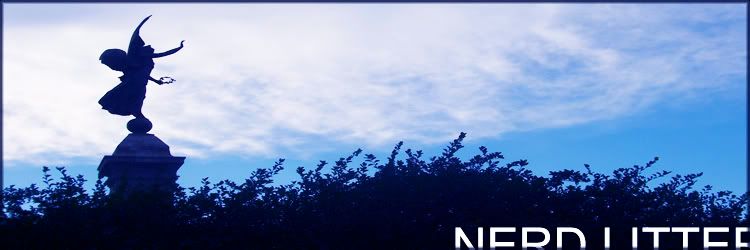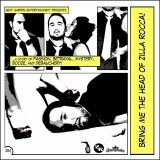I got nobody on my side, and surely that ain't right
 If you ask me, live tracks are mostly not worth the hassle. For every unearthed gem, there are countless more that do little more than deliver a faithful recreation with added crowd noise. Or, even worse, a band will tack on an unnecessarily wonky guitar solo or extraneous vocal tics or a redundant two minutes. Even when the performance is worth hearing, there's something weirdly voyeuristic about eavesdropping on a show you weren't at. It's a bit like hearing a friend tell a story involving a bunch of strangers--no matter how well-executed it is, you can't help but feel reminded you're on the outside. With that said, some tracks can definitely benefit from their live settings. The first that comes to mind is U2's famous rendition of "One" in Sarajevo. In a setting so scarred with battle lines and ethnic strife, the audience singing along in a unified voice feels true and metaphorically hefty. Sure, Bono's kind of ruined it since by becoming an ego-tripping Captain Planet with more bombast than a whole clone army of Chris Martins, but that song speaking so deeply to a stadium full of survivors still seems momentous. It reproduced an experience I couldn't have had, serving as a living document of its time and place. Another song that apparently gains extra dimensions in front of an audience is Portishead's "Roads." In anticipation of the band's upcoming third studio album, Third, I've been revisiting their back catalogue even more than usual. I even went back to their concert album, Roseland NYC Live (AKA PNYC), normally the one work I skip over. Relistening to it today, I was especially struck by "Roads" and how it differs from its studio counterpart. Like "One," it's a song that touches on issues of individuality, loneliness and separation, which makes the interplay with the audience an interesting dynamic. Largely before "Roads," Roseland's penultimate track, the crowd is pretty docile. They cheer politely and briefly at the beginnings of songs and clap fervently but respecfully at the end. It's about at the level of, say, a Broadway play two months into its run. But once the opening strains of "Roads" come on, the crowd immediately starts losing its shit. (Evidence suggests that this was the band's first encore song, but even that spillover excitement can't quite explain the response.) The audience members howl like they're finally getting to hear a one-hit-wonder's one hit or like they're getting to hear some contraband treat (think Radiohead playing "Creep" maybe). Since neither is the case, the only other plausible deduction is that this is a whole lot of people's favorite Portishead song. It's my favorite Portishead song, so maybe I shouldn't be so surprised. But I am. And I certainly wouldn't predict the love would be so overwhelming, it would inspire an impromptu clap-along. Suddenly, the crowd becomes almost embarrassingly goofy in its enthusiasm, ramping it up to near-bar mitzvah proportions. Some of the Amazon reviews (the place where I get most of my opinions from) specifically slam the clap-along, but I find it endearing. For music as downbeat, insular and intimate as Portishead's, this level of involvement is strangely touching. What makes the reaction even more contradictory and amusing are the lyrics. In typical Beth Gibbons fashion, they're depressing and vague with a queasy mix of loathing and longing. Sung by almost anyone else, backed by almost anything other than Geoff Barrow's and Adrian Utley's lush arrangements, the words would sound like blood-penned poetry by a high school Goth. Somehow though, Portishead makes them not only work, but seem potentially profound. Nonetheless, it's still cognitively dissonant to hear Gibbons sing, "I got nobody on my side," as a whole crowd cheers her on. When she asks over and over, "How can it feel this wrong?" their fawning approval makes the assessment ring pretty false. Or that's the cynical interpretation anyway. In my more idealist moments, I think how powerful that experience must've been. Surely, everyone in that audience has hit his own personal low point, has felt the sneak attack of loneliness, has faced a seemingly endless stretch of desolation. In Gibbons' obsessively personal scope, she's enumerating universally painful feelings and neutralizing them. She's rendering them gorgeous or even sensual, producing palatable confessions. In baring something so raw (notice how her voice threatens to crumple in on itself on the word "regardless" at the five-minute mark), Gibbons draws the crowd in and confirms they're a part of something much bigger. That connection, that consolation, is live music's main advantage, and one Portishead has thoroughly mastered on "Roads." * MP3: "Roads" (Live) - Portishead from Roseland Live NYC [Buy it] * Previously: The greatest #5: Dummy |





















Comments on "I got nobody on my side, and surely that ain't right"
-
 Anonymous said ... (9:54 AM) :
Anonymous said ... (9:54 AM) :
-
 Charlie said ... (5:13 PM) :
Charlie said ... (5:13 PM) :
post a commentRoads is also one of my favorite Portishead songs, but I think there might be another explanation for the difference in crowd participation. On the CD, tracks 9 and 10 (Sour Times and Roads) were not recorded in the same session as the rest of the album (so it says in the booklet at least), but at San Francisco (Sour Times) or Kristiansand (Roads). I believe there's also a version of Roads on the PNYC DVD, but it's been a while since I have seen it, so I don't know about the crowd participation there.
Anyway, Roads is a magnificent song and worth every attention it gets.
Does that mean the Kristiansand crowd was clapping along throughout their entire concert? Now that would be too much.